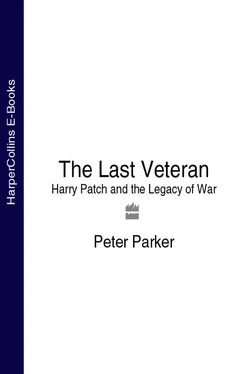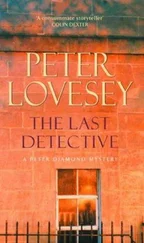Bad as this was, it was not unique to Britain. France, Germany and Austria each not only lost more combatants than Britain, but also lost a higher proportion of their overall population: France lost 1 in 28, Germany 1 in 35, Austria 1 in 50, Britain 1 in 66, Italy 1 in 79, the USA 1 in 2,000. Furthermore, although the mass slaughter on the Western Front was indisputably awful, for all the talk of ‘mechanised killing’ it does not compare with the industrialised murder carried out by the Nazis during the Holocaust. It remains a grim statistic that of the six million British who fought in the First World War roughly one in eight were killed, but they were at least killed fighting in defence of their country or for some sort of patriotic principle rather than simply rounded up for liquidation. It is not even a question of numbers. The long lists of names on First World War memorials, many of them from the same family, tell of the losses sustained by individual villages, towns or cities, but none of them speaks so eloquently of communities destroyed as, for example, the interior walls of the Pinkas Synagogue in Prague, where the names of some 80,000 Jewish victims of the Holocaust from Bohemia and Moravia are inscribed, arranged by where they once lived: men, women and children, street after street after street. The bomb that fell on Hiroshima in 1945 eclipsed anything produced by even the greatest bombardment of the trenches, resulting in between 100,000 and 200,000 deaths in an instant.
Regardless of the historical and demographic facts, when remembering the First World War the British continue to talk about a lost generation. There is a sense that as a nation we have never quite recovered from this loss, that the flower of British youth was cut down in Picardy and Flanders, that an irreplaceable wealth of talent and an almost prelapsarian state of innocence were destroyed for ever between the years 1914 and 1918. Cast out of the Edwardian Eden, where it was somehow always perfect summer weather, we have ever after tended to look yearningly back rather than expectantly forward.
The war has become part of who we are. It occupies a disproportionately large place in our sense of the world and its history and remains a seemingly endless resource not only for historians, but for novelists, poets, dramatists and composers, for cinema and television. The sounds and images of the war are so imprinted on the national consciousness that we recognise them instantly: the foreign place names such as Mons, Ypres, Loos, Passchendaele and the Somme, which retain a familiarity even for those who could not point to them on a map; the lines of men at the recruiting offices on 4 August 1914 and the rows of crosses (now replaced by rounded headstones) that marked where those bank-holiday crowds ended up; the scarlet poppies blowing in a landscape rendered unrecognisable by shellfire; the mud and the blood, and the big guns in France that could be heard this side of the Channel. When in 1980 Kenneth Macmillan created a ballet using Poulenc’s Gloria , all he had to do was place tin helmets on the dancers’ heads to make this joyous piece of music into a requiem. Indeed, the war is constantly used – some might say dragged in – as a reference point in the arts: Andrew Davies’s television adaptation of A Room with a View (2007) dispensed with E.M. Forster’s happy ending and had George Emerson killed in the trenches, while Kenneth Branagh’s film of Mozart’s The Magic Flute (2006) sent Tamino off to the Somme. The complex philosophical ideas, with their Masonic elements, that characterise the struggle between Sarastro and the Queen of the Night in The Magic Flute could, Branagh felt, be presented to a wider audience if the action was moved to the Western Front. ‘By giving each an army and presenting visually the landscape of the First World War, there is a sense of import and scale about the actions of these characters,’ he said. ‘The Great War provides a territory both literal and metaphoric that is as emotive and complex as the opera itself.’
This territory is a disputed one. Our popular notion of the war – formed largely by what was written about it by those who fought in the front line, and by later artistic reimaginings of it – is that it was indeed uniquely horrible; that it was conducted by an incompetent High Command that repeatedly sacrificed thousands of men in order to gain a few yards of churned earth; that it was characterised by ‘mud, blood and futility’. There is, however, another view of the conflict, one argued by such leading military historians as Correlli Barnett, John Terraine, Hew Strachan, Brian Bond, Nigel Cave, Gordon Corrigan, Trevor Wilson and Robin Prior, and supported by a generation of younger so-called ‘revisionist’ historians such as Gary Sheffield. These historians point out that not all the generals were callous incompetents, nor all rankers hapless and unwilling victims; they insist that some of the battles were brilliantly planned and fought; they remind us that we did after all win the war. They are exasperated by the Anglocentric attitude to the war that prevails in Britain, pointing out not only the war’s international dimensions but also the even larger losses sustained by other combatant countries. The British tendency to think of the war only in terms of the Western Front, they argue, gives us a hopelessly skewed impression both of its conduct and of its wider significance. They dismiss the War Poets as unrepresentative, complain about the way the war is taught in schools where literature is given precedence over history, and retain a particular loathing for two of the most enduringly popular representations of the war, the play Oh What a Lovely War! and the television tragicomedy Blackadder Goes Forth. In short they feel that the British are obsessed with the ‘tragedy’ of the war and are incapable of seeing the bigger picture. Their view of popular representations of the war can be summed up by the title of Gordon Corrigan’s 2003 study: Mud, Blood and Poppycock.
The impact of such books on interpreting the war in universities is considerable, and there is no doubt that many of them are meticulously researched and cogently argued. Their impact on the public at large, however, is as yet limited. As Gary Sheffield comments in the introduction to The Forgotten Victory (2001), which is one of the best, most approachable and most persuasive of these ‘revisionist’ histories: ‘For the last decade and a half I have sat in academic seminars in which historians have complained about the difficulty of shifting public opinion on these issues. It seems that every time an important new book comes out, another popular book or television programme appears repeating the same old tired myths.’ The two sides in this argument have become – to use an appropriate verb – entrenched, and it seems unlikely that either will yield in the foreseeable future.
It is no part of this book’s aim to take up this quarrel, but in tracing the way in which the First World War has been remembered and commemorated, and by looking at the way in which the experiences of those who fought in it on the front line have shaped this process, the many corrective ‘facts’ adduced by military historians are less relevant than what the majority of people in Britain have believed and continue to believe about the war. We do not define ourselves as a people by facts, but by received ideas – ideas that have a symbolic rather than a literal truth. Among the long-cherished ideas that the British have about themselves is that they believe in fair play and favour the underdog, they are phlegmatic and always see the funny side of any given situation, and they are among the most tolerant people in the world. All these notions could be ‘disproved’ by citing examples of contrary behaviour, but they persist as a generally accepted truth. As far as the war is concerned, we may no longer believe that angels appeared to protect the British at the Battle of Mons in 1914, that a Canadian serviceman was ‘crucified’ on a barn door near Ypres, or that Germans bayoneted babies and boiled down corpses in order to produce soap, but we still believe – with considerable justification – that the First World War was a great national tragedy and that an entire generation was profligately and unnecessarily sacrificed.
Читать дальше












